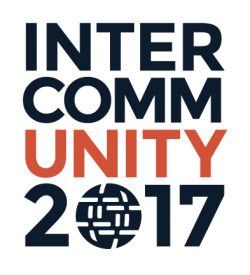BRISBANE, Australia
19 September 2017, 13:00 – 14:00 (AEST/UTC+10)
13:10 – 13:50: Live Panel: Personal Freedoms and Rights on Internet
For many, the growth and ubiquity of the Internet is a sign of progress and innovation. For others, however, it may reach a tipping point in the future where the risks to society and freedoms grow faster than the benefits. While the impact on personal freedoms and human rights in a future that is ever more connected is far from clear, it is likely that challenges related to surveillance and the loss of privacy and control over one’s data will become more pressing.
Many participants fear that freedoms and rights will become more fragile and under threat in a hyper-connected world. Some believe that efforts to curtail invasive means of collecting and sharing data may make little headway, particularly with technology advances that will enable more efficient and widespread data collection and analysis. Will the Internet, as one participant suggested, become a “surveillance environment” by both governments and business?
InterCommunity Brisbane node will discuss and explore answers and actions to the following questions, particularly in Australian context:
- To what extent will the Internet be used as a tool to influence and control society rather than promote freedom and human rights?
- Will people have meaningful choices to “unplug or disconnect” and determine how they utilize the Internet or will it be unavoidably pervasive?
- Will the risks of the Internet to freedom and rights outweigh the benefits to society and the individual? If so, what reaction will this evoke?
Moderator: Laurie Patton, CEO, Internet Australia
Panelists:
- Kasek Galgal, Board Member, Internet Society Pacific Islands Chapter
- Paul Brooks, Vice-Chair Internet Australia / Head of Networks & Technology, Trident Subsea Cable
- Andrew Khoo, Amaysim Australia Limited
- Emma Dawson, Executive Director, Per Capita Australia
Find panelist biographies below.
Venue
APNIC Office
6 Cordelia Street, South Brisbane
QLD 4101, Australia
Contact:
Name: Louise Tromp
Email: louise [at] apnic.net
Panelist Biographies
Kasek Galgal
Kasek Galgal (Papua New Guinea) is a Lecturer at the University of Papua New Guinea. His work is focused on cybersecurity, free and open source software (FOSS), and network development. He is a former APNIC Fellow and is active in local and regional Internet governance efforts. He is an active member of the Pacific Island chapter of the Internet Society (PICISOC), is very passionate about ICTs for development (ICT4D), education and bridging the digital divide.
Paul Brooks
With over 20 years’ experience in communications and the Internet, Dr Brooks is an expert in telecommunications network design, planning and operations. He has held several executive technical leadership roles with domestic and international carriers, bringing extensive hands-on experience in broadband access, optical fibre networking, and global backbone network design and operations.
Previous roles include Co-founder of Vocus Group (ASX:VOC) before listing, Chief Technology Officer at TransACT Communications, and Head of APAC Engineering for Global One / Sprint International.
Paul is an active participant within Communications Alliance and the Australian ISP community. He is a Director of Internet Australia and a Director of the Interplanetary Networking Chapter of the Internet Society. He holds a PhD in Astrophysics and Optics from the University of New South Wales.
Laurie Patton (moderator)
 Since 2014 Patton has been Chief Executive Officer / Executive Director of Internet Australia, a chapter of the global Internet Society, where he is frequently interviewed on radio and television and quoted in the press. Internet Australia is the not-for-profit peak body representing Internet users. It provides advice to government and industry and engages in public advocacy on matters that affect the Internet, especially those relating to accessibility, security and trust. On Internet Australia’s behalf Patton sponsored the creation of a group called Parliamentary Friends of the Internet, a forum for providing information and guidance to MP’s and senators, especially in relation to legislation affecting Internet users. He has led IA’s campaigns for all Australians to have access to the Internet and the skills to use it, both for economic and social development, and against Internet site-blocking, which he argues is more of a public relations exercise than an effective solution to the unlawful downloading of video and audio content.
Since 2014 Patton has been Chief Executive Officer / Executive Director of Internet Australia, a chapter of the global Internet Society, where he is frequently interviewed on radio and television and quoted in the press. Internet Australia is the not-for-profit peak body representing Internet users. It provides advice to government and industry and engages in public advocacy on matters that affect the Internet, especially those relating to accessibility, security and trust. On Internet Australia’s behalf Patton sponsored the creation of a group called Parliamentary Friends of the Internet, a forum for providing information and guidance to MP’s and senators, especially in relation to legislation affecting Internet users. He has led IA’s campaigns for all Australians to have access to the Internet and the skills to use it, both for economic and social development, and against Internet site-blocking, which he argues is more of a public relations exercise than an effective solution to the unlawful downloading of video and audio content.
